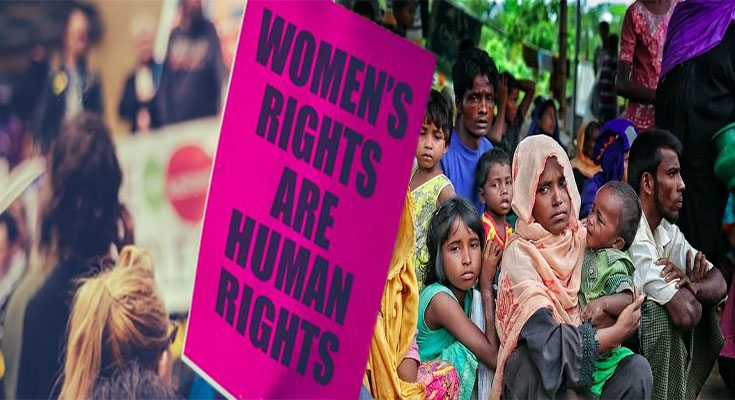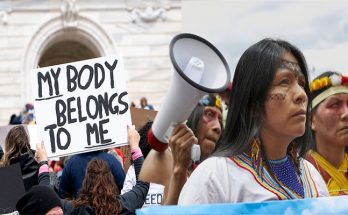Here are some examples of women’s rights violations. Domestic violence, Forced child marriage, Female genital mutilation, and unpaid care work are just a few. Some women also face many more violations due to their membership in minority groups. These women may be especially susceptible to discrimination, such as gender discrimination. Read on for more examples of women’s rights violations. The world is a dangerous place for women, and these examples should make you consider the rights of women today.
Domestic violence
Domestic violence is an important human rights violation, affecting one in three women. It occurs between intimate partners – current or former spouses, boyfriends or girlfriends, and others. It has devastating effects on a woman’s physical, emotional, financial, social, and political health. Unresolved domestic violence also undermines women’s equality before the law and reinforces their subordinate social status.
In the case of Saudi Arabia, despite recent progress, women are still prohibited from driving. Meanwhile, authorities continue to harass and detain women for advocating for women’s rights. Despite these advancements, domestic violence remains a major human rights violation. Domestic violence, sexual abuse, and forced marriage are just a few examples of abuses against women. While these abuses are often considered a violation of women’s rights, they do not have to be.
Forced child marriage
Children are not mature enough to marry yet, and child marriage has disastrous effects on their physical and emotional development. Not only are they at risk of dying during childbirth, but they also have limited understanding of reproductive health and rights. In addition, they are far more likely to suffer from domestic violence and exploitation. Many girls are unable to continue their education due to forced child marriage. The consequences of forced child marriage are severe and often irreversible.
In impoverished contexts, girls are not viewed as potential wage earners. Instead, they are seen as a financial burden for their families. Many families cannot afford to educate their daughters, and forced child marriage is a viable solution to alleviate the desperation. However, it’s not just girls who are at risk. This is true in many countries, including the United States. In addition, child marriage also has a profound impact on young boys’ health, education, and future.
Female genital mutilation
In the context of gender-based violence, female genital mutilation is a form of physical violence, which involves cutting or removing the female genital organs. This non-medical practice affects more than 200 million women worldwide, and it violates several human rights. The European Parliament has recently adopted a resolution condemning female circumcision. These measures will help combat the practice, but the question is: how far do we go?
Female genital mutilation, or FGM, violates the rights of women and girls, including the right to equality, non-discrimination on grounds of sex, freedom from torture, and the highest attainable standard of health. It also robs women of their dignity and perpetuates a subservient role. Moreover, FGM is illegal in over 90 countries, but has been tolerated in some.
Unpaid care work
Unpaid care work is a major part of the economy that contributes significantly to gender inequalities, but is largely neglected as a human rights violation. This type of work is often performed by unpaid women and perpetuates a broken economic system that has accumulated vast wealth for the privileged few while violating the rights of women. While women do contribute massively to the economy, they do so for very little money. Unpaid care work also leaves women with no financial independence and little empowerment, making them particularly vulnerable to violence.
Despite the fact that the Beijing Declaration explicitly lists unpaid care work as a barrier to gender equality, it is still one of the biggest roadblocks to gender equality. Fortunately, organizations have been working to address this issue. The Bill and Melinda Gates Foundation has been working to better understand the problem of unpaid care work and support proven strategies to remove barriers to economic independence. Their partners have been collecting data on unpaid care work and supporting governments as they implement policies to make changes and improve the lives of women and their children.
Lack of fair pay
The right to just and favourable working conditions for women and men is explicitly addressed in the Convention on the Elimination of Discrimination Against Women. Women should receive the same pay as men for the same work. In some countries, women experience retaliation in the workplace due to gender discrimination or unfair dismissal. The right to just and favourable working conditions is intimately linked to the right to equality and non-discrimination in employment.
The ACLU fights to eliminate workplace discrimination and make sure that all workers bring home every dollar they earn. Wage discrimination against women is a significant cause of gender stereotypes, since many women lack access to jobs in traditionally male-dominated sectors. Women are also disproportionately represented in lower-paying, less powerful occupations. This inequality exacerbates the challenges faced by women and families. To end wage discrimination and advance gender equality, the ACLU and other organizations are committed to eliminating these barriers.
Limited opportunity to own land
Women own only one to two percent of the land in the world. Despite the fact that most women are farmers and rely on agriculture as a source of income, they often depend on male relatives or friends for access to land. Development practitioners have begun to pay attention to this gender gap in land ownership and control. Here are some examples of limited opportunity to own land and the resulting effects.
Agrarian rights and the right to land are the foundation for women’s economic, social, and political development.
The Food and Agriculture Organization (FAO) has issued calls for equal treatment for women in access to land. The UN Human Rights Commission and the Convention on the Elimination of Discrimination Against Women have also made the case for equal treatment for women in agrarian reform. Multilateral development agencies have also noted the importance of women’s land rights. Despite progress in land ownership, women still face many challenges in owning land.





